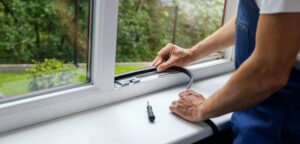Navigating Winter: Maintaining Indoor Air Quality for a Healthier Home
As winter settles in, the drop in temperatures prompts us to seal our homes tight to retain warmth. However, this seasonal practice can inadvertently impact indoor air quality. explore how the winter season can influence the air we breathe indoors and discuss effective solutions to help in maintaining indoor air quality.
Winter’s Impact on Indoor Air Quality:
- Reduced Ventilation: Cold weather often discourages opening windows and doors, leading to reduced ventilation. Stagnant air allows pollutants to accumulate, affecting indoor air quality.
- Increased Particulate Matter: Winter brings an influx of particulate matter, including dust, pet dander, and allergens, as homes remain closed off from the outdoor environment.
- Humidity Fluctuations: Indoor heating systems can contribute to lower humidity levels, leading to dry air. On the other hand, poorly ventilated areas may experience increased humidity, fostering mold growth.
Solutions for Winter Indoor Air Quality:
- Air Purifiers: Invest in high-quality air purifiers equipped with HEPA filters to trap and remove airborne particles. Consider models with activated carbon filters to neutralize odors and volatile organic compounds (VOCs).
- Proper Ventilation: Despite the cold, periodically open windows and doors to allow fresh air circulation. Use exhaust fans in kitchens and bathrooms to expel pollutants, and consider installing a ventilation system for consistent airflow.
- Humidity Control: Maintain optimal humidity levels (between 30-50%) to prevent issues related to both dry and overly humid air. Use humidifiers to add moisture in dry environments and dehumidifiers to reduce excess humidity.
- Regular Cleaning: Stay on top of dusting, vacuuming, and cleaning surfaces to minimize the buildup of indoor pollutants. Pay attention to areas prone to moisture, such as bathrooms and basements, to prevent mold growth.
- Natural Ventilation Strategies: When outdoor conditions allow, take advantage of milder days to ventilate your home naturally. This can help flush out stagnant air and introduce fresh, outdoor air.

- Seal Gaps and Leaks: Ensure that windows and doors are properly sealed to prevent the infiltration of outdoor pollutants. Regularly check for gaps and use weather-stripping or caulking to address any issues.
Maintaining good indoor air quality during the winter is crucial for the health and comfort of your household. By combining air purifiers, proper ventilation practices, and humidity control measures, you can create a living space that promotes well-being even during the colder months. Take proactive steps to address winter-specific challenges and enjoy a breath of fresh air within the warmth of your home.

 Texas Department of Licensing and Regulation
Texas Department of Licensing and Regulation